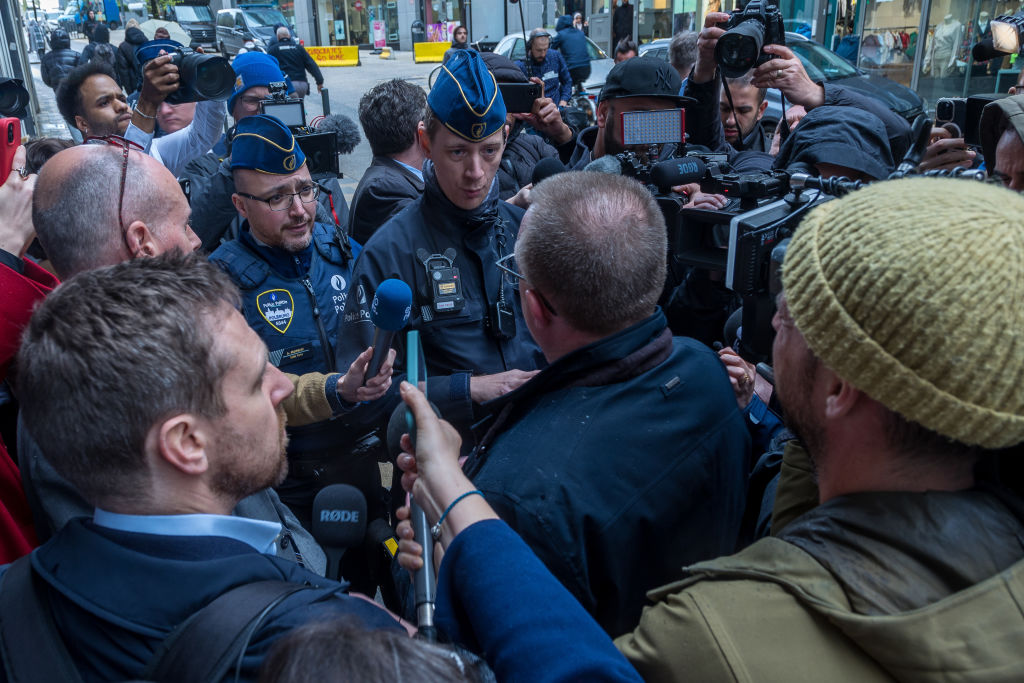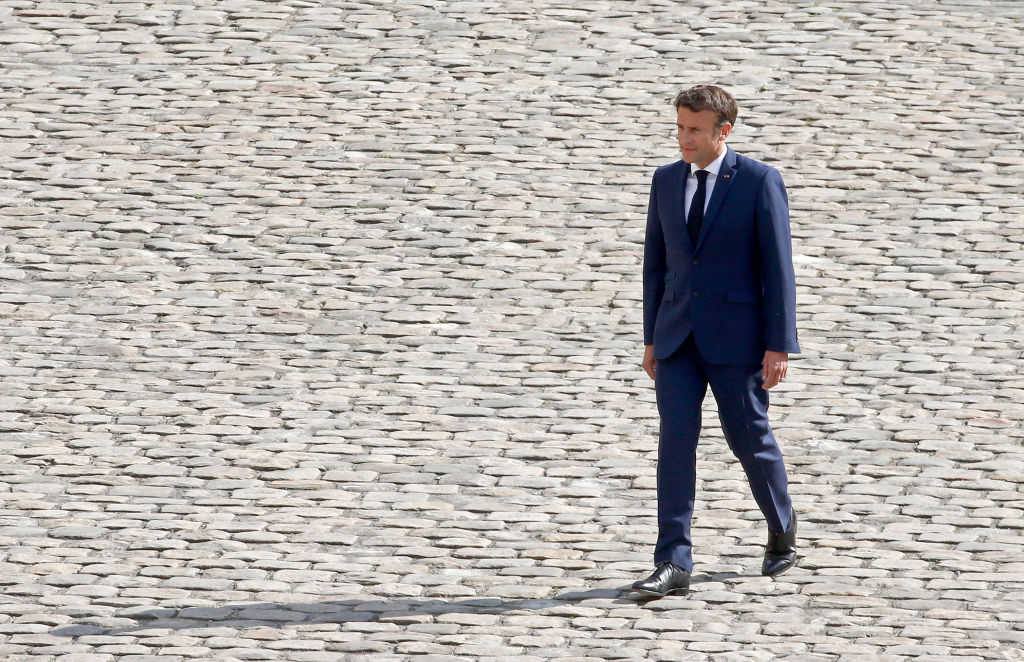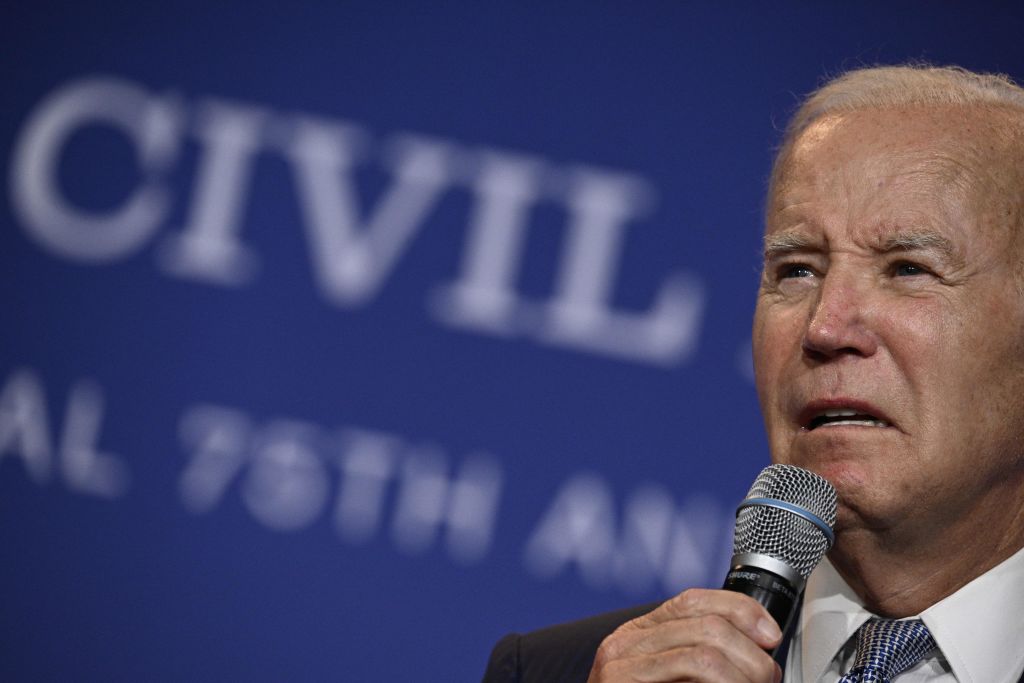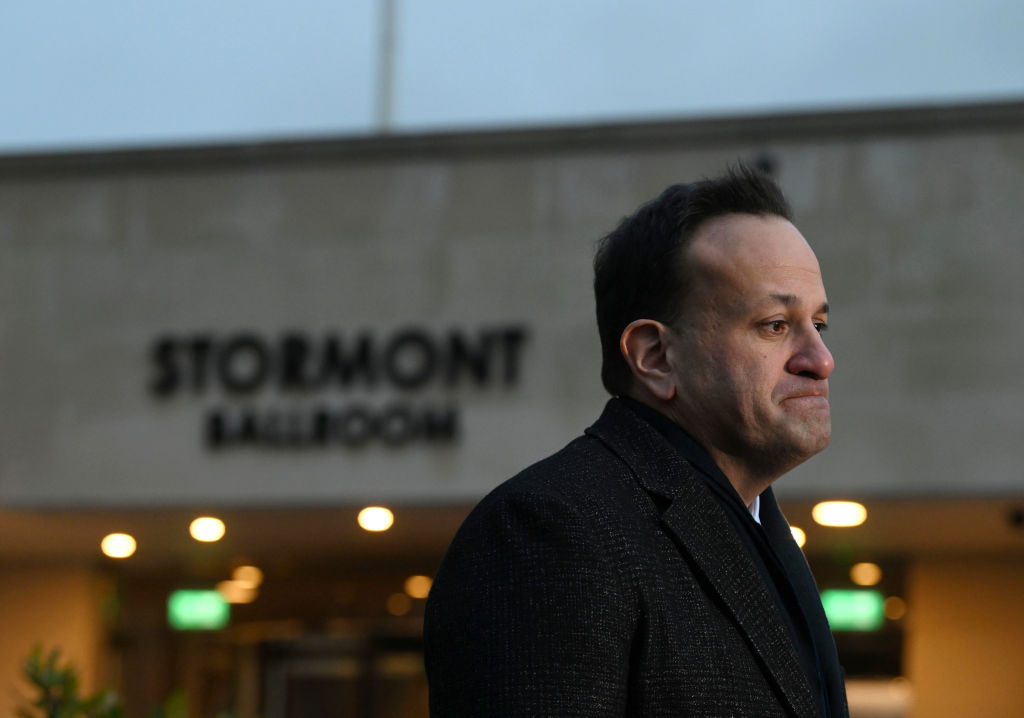France deserves better than a politics of technocratic Europhilia.
A Free Speech Showdown at NatCon

Fortunately, liberty triumphed—this time.
Earlier this month I watched Belgian police enter an event hall to shut down a conference on orders from a government official. It was a sight that should be unthinkable in a modern Western country, yet it took place in the heart and capital of the E.U.
It was my first time attending the National Conservatism Conference, or NatCon, a meeting of politicians, academics, journalists, and opinion leaders from around the world aimed at promoting national identity and sovereignty in Europe. It should have been another average installment of the annual conference, of limited significance beyond those interested in conservative European political discourse. Thanks to local government officials in the host city of Brussels, however, it became the subject of news headlines around the world and a veritable free speech showdown.
Less than a week before the beginning of the conference, the original venue, under pressure from “anti-fascist” groups and a local district mayor, informed organizers they were no longer welcome. I arrived at the second venue on the first day of the conference only to discover that late the night before, they too had canceled under pressure from their district mayor. Organizers managed to book a third venue, the Claridge event hall, at the last minute, and the conference began on time on Tuesday.
Word began circulating that morning that the socialist mayor of that district, Emir Kir, intended to shut down the conference. Kir signed an order prohibiting NatCon from continuing and dispatched police to Claridge. Nigel Farage, a leading figure of the Brexit campaign who was back in Brussels for his first official visit since serving as a member of the European Parliament, was speaking at the time and announced to the audience he would remain onstage taking questions until police arrived. A handful of officers entered the building and made their way to the main hall, surrounded by a crowd of conference attendees taking photos and video. After just a few minutes, the officers turned around and exited the building. More officers arrived and began guarding the main entrance. They permitted the event to continue, but blocked catering shipments and prevented anyone from entering. French presidential candidate Éric Zemmour was unable to go in to deliver his speech scheduled for the afternoon.
There was a sense of shock and awe among the participants throughout the rest of the day as it became clear that the otherwise small conference, with its several hundred attendees and three or four sponsor booths, had taken on global importance. The discussion among the speakers onstage came back again and again to free speech. Before the day was up, Belgian Prime Minister Alexander De Croo had denounced the attempted cancelation, calling it—rightly—unacceptable and unconstitutional. Prime Ministers Rishi Sunak of the U.K. and Giorgia Meloni of Italy released similar statements. That evening, the crowd gave a lengthy standing ovation to the venue owner, a Tunisian immigrant to Belgium, who stood up to pressure to cancel, citing his belief in free expression.
While Americans have become accustomed to event cancellations on college campuses, the incident in Brussels was something altogether different. The cancellation attempt did not come from students or university officials on their own private campus. It was a case of politicians blocking political speech delivered at a private event space.
Kir’s reasoning for his decision was startling. The police order cited the fact that speakers came from the “conservative and religious right” and were “traditionalists” who had “hostility to legalized abortion [and] same-sex unions.” Apparently, the traditional teachings of Christianity, the foundation of European civilization, are considered beyond the pale in the capital of the European Union. Could Robert Schuman, the man regarded as the father of European unity and a candidate for Catholic sainthood, have possibly imagined this?
Kir also contended that some speakers represented the “far-right.” It is true that they are a good deal further to the Right on the political spectrum than the average Brussels bureaucrat or, clearly, district mayor. But people like Hungarian Prime Minister Viktor Orbán, former U.K. Home Secretary Suella Braverman, and Cardinal Gerhard Müller, former prefect of the Vatican’s Congregation for the Doctrine of the Faith, are influential, mainstream leaders, not extremist kooks.
What were the “far-right” views expressed during the two days of the conference? The idea that intact families with a mother and father are essential to the flourishing of society. That Christianity is a great good for Europe. That the E.U. is undemocratic and unrepresentative of Europeans in significant ways. That immigration should be reduced. That society should be wary of many climate change mitigation strategies. That the transgender movement harms children. That the rise of Islam in Europe represents a danger for the continent’s future. While certainly rare in the progressive Brussels bubble, such beliefs are by no means fringe. They are common in society at large—perhaps increasingly so—and are part of ongoing debate.
And despite Kir’s concerns about “serious public order problems,” the worst examples of disorder I saw at NatCon were crowding at lunchtime and chattering in the back of the hall during talks.
I work as a research fellow at the Mathias Corvinus Collegium (MCC), a conservative-leaning Hungarian think tank that helped organize the conference along with the Edmund Burke Foundation, an American public affairs institute. MCC opened a center in Brussels in 2022 with the intent to promote respectful dialogue and vigorous debate in the capital of the European Union. Clearly, Brussels officials don’t want any of that. Dissent, it seems, must be crushed, canceled, and ignored.
So why does this week’s incident matter to the West? It matters because it represents a clash between two visions of the future of Europe: one offered by Brussels and one by Budapest, the two political poles of today’s Europe. Brussels represents progressivism, globalism, and an E.U. establishment that is intolerant of viewpoint diversity and uninterested in honest debate. Budapest is the capital of Hungary, a country that has received increasing admiration from those on the Right in Europe and back home in the U.S. It represents respect for tradition, age-old cultural norms, conservatism, and national sovereignty.
After the Belgian police’s intimidating presence disrupted the first day of the conference, Alliance Defending Freedom, a religious liberty legal advocacy group, challenged Kir’s order and successfully overturned it in court. Day two of the conference went smoothly and as planned. But had ADF not acted so quickly in standing for freedom, proceedings may have been halted as many in the conference hall had feared. Let this be an alarm bell that helps the West recommit itself to free speech. Let this also inspire other conservatives to act with similar persistence and boldness. When you know you’re right, never ever go down without a fight.
The American Mind presents a range of perspectives. Views are writers’ own and do not necessarily represent those of The Claremont Institute.
The American Mind is a publication of the Claremont Institute, a non-profit 501(c)(3) organization, dedicated to restoring the principles of the American Founding to their rightful, preeminent authority in our national life. Interested in supporting our work? Gifts to the Claremont Institute are tax-deductible.
The Biden Administration asks whether we should have a First Amendment.
Despite the media’s subterfuge, Missouri v. Biden is a complete victory for the plaintiffs.
The moral limits of our constitutional order.
Ireland’s leaders are inviting disaster.
Competing visions of the purpose of free speech.






